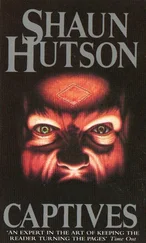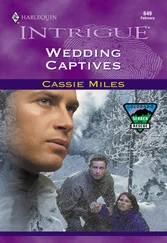Norman Manea - Captives
Здесь есть возможность читать онлайн «Norman Manea - Captives» весь текст электронной книги совершенно бесплатно (целиком полную версию без сокращений). В некоторых случаях можно слушать аудио, скачать через торрент в формате fb2 и присутствует краткое содержание. Год выпуска: 2014, Издательство: New Directions, Жанр: Современная проза, на английском языке. Описание произведения, (предисловие) а так же отзывы посетителей доступны на портале библиотеки ЛибКат.
- Название:Captives
- Автор:
- Издательство:New Directions
- Жанр:
- Год:2014
- ISBN:нет данных
- Рейтинг книги:3 / 5. Голосов: 1
-
Избранное:Добавить в избранное
- Отзывы:
-
Ваша оценка:
- 60
- 1
- 2
- 3
- 4
- 5
Captives: краткое содержание, описание и аннотация
Предлагаем к чтению аннотацию, описание, краткое содержание или предисловие (зависит от того, что написал сам автор книги «Captives»). Если вы не нашли необходимую информацию о книге — напишите в комментариях, мы постараемся отыскать её.
Captives
This is a moving account of a country shaken by communism and anti-Semitism and haunted by recent atrocities, from "a distinguished writer whose vision of totalitarianism is close to Kafka's cloudy menace, universal yet internalized" (Richard Eder,
).
Captives — читать онлайн бесплатно полную книгу (весь текст) целиком
Ниже представлен текст книги, разбитый по страницам. Система сохранения места последней прочитанной страницы, позволяет с удобством читать онлайн бесплатно книгу «Captives», без необходимости каждый раз заново искать на чём Вы остановились. Поставьте закладку, и сможете в любой момент перейти на страницу, на которой закончили чтение.
Интервал:
Закладка:
A group of young tourists stood close by. They shed stray bits of information about the history of the fortress. Someone said that the restoration of the fortress had taken place several months ago. “He” turned, then, rushed toward the speaker, snagged him by the collar, and asked if the wall hadn’t originally been made of stone and curved.
— Yes, it seems. .
The young man wasn’t sure: he hadn’t had the leisure to recover. He was no longer sure what he had meant to say — the wall seemed to have been brick and straight, however, and “he” would go on believing this from now on: he was afraid to go back — everything escaped him so quickly. We kept forgetting in order to be free, in other places and at other times, without roots and duration: moving slowly, like a mobile point on a straight line rotated outward from a fixed pole, following spirals that tangled into a ball — the ash of closed serpentine spirals, rotations in a dark self, preliminary corridors. The third personand the second person gradually impeded access; the charred spirals deepened into a narrow remnant, contracted spaces, small, heavy steps on wires thin as humid trails of smoke, onetime slopes, stairs, spirals, and serpentine coils, scattered in a distant, black fog.
We would have to remain together, therefore, myself and I, as friends, opposite halves allied by necessity, unreconciled individuals, each struggling to inhabit me by himself. We were like a couple that might have seemed in agreement, but hadn’t agreed on anything except indifference and the struggle for the life and death of the other, for whom existing at the same time and in the same place was impossible, unless this conflicted state was just a way for us to march in step and passively endure our own peaceful absence. The week of yesterday, the Friday of yesterday, and the year of yesterday would have to be forgotten. I would have to begin anew, as Father had taught us, for Eva’s and Dona’s smoke to rise, for us to be free, for Captain Zubcu to burn, for us to forget all those half-games in exchange for halves of each other. We should forget whom and what and why we forgive, and in this way it would be possible to organize the pantomime of the Saturday tomorrow and the day after that.
The walls of the Big City had therefore enclosed us. The alarm clocks shrieked at dawn. . damp, uniform mornings. . the shirt like a cold lash, hurried convoys climbing the same street, bowing tensely under the factory windows, heads lower than the porter’s cap. Noises, drawers, voices, telephones, cigarettes, the pink ozalid paper, the industrial ovens in transverse and longitudinal sections, funnels, platforms, bunkers, circuits, cyclone collectors. I watched my other self, who knew my own laziness. I kept heeding the rheumatic pain that climbed slowly down the thin pipes to my knee, to my ankle.
The machines for beating time throb in the back of the neck, but tomorrow is a holiday, Saturday. It’s worth gathering our strength for another “have to” and “a bit more,” again, today, another hour, tomorrow is Sunday, the seventh day: we are born again, it will be a holiday, we’re finishing school — like a grand finale, the youthful brow will be encircled by the ultimate wreath, the gates will spring aside before heads crowned with laurels. We will drag the triumphal car through the flattened crowd; tomorrow we are free to choose anything at all. Tomorrow is Saturday, the last year of the week, the great orchestra of typewriters will cadence the victory march, thousands of telephones will ring out like sirens saluting the backs bent over their work. We are a single philosopher: every year of the week we were an absent philosopher, every day we thought of the past and the future, and behold, it’s Saturday afternoon: Father has come to congratulate his eminent offspring.
— You should take up philosophy. Your abilities would be of the greatest use to our comrades. That’s their belief, too.
— The top of my class are going to the Polytechnic Institute or into medicine. It would mean finding myself among the bottom of the class, but you’re right. I’ll take into account the place where my abilities could best serve the comrades.
He should have been startled by the all too natural tone of my agreement. I could do anything with myself. My arrogance was boundless, ready to set out on the most capricious byways, just to see what would happen to me. Therefore, later, one Saturday afternoon when the graduates of the Polytechnic had gathered around the lists of relocation assignments, they asked me what factory I had chosen for myself. “Not one,” I lied, but I wasn’t lying when I confessed that my dream had always been to become a ticket seller at a cinema in Africa. The formulation had come spontaneously, and I had offered it several days ago to my former classmate, Caba, who was also graduating from one of the faculties at the Polytechnic.
And he revealed his future plans to me as well.
— I’m getting married. We have to do it now, chop-chop. Otherwise who knows what little coquettes we’ll wind up wasting time with. My lady, Gaby, is finishing medical school, and I’ve got to make sure she’ll be posted to the capital. I know I’ve come up with a real showstopper by choosing a job at the Zarea Champagne factory, but it looks like it could offer useful social relations all over the place.
After a summer and a day, it was Monday already and they were waiting for me as the jokes froze on the wage slaves’ lips — they being Misha (the plain-clothes patrol), the chair like a coffin, and the industrial ovens where Captain Zubcu burned. I brought my hand to my throat, to defend myself; it was too late: the siren was going off. . I lifted the receiver, it was the fat lady professor. Quiet. There are other tenants. I was in the street, orphan of the rain, holding out flowers to policemen and the black woman crooning Summertime .
I was a pale nomad, transparent, like a tall glass of water, defiant and suave. I found myself in a tram that would carry me toward sneering coworkers. Shadows kept climbing on and off. Their mirror images climbed off and on. The tram kept advancing toward the hill of another identical morning — casting me out onto the damp, unknown street before I planned to get off. I wandered into the fold of the streets to find the hours, the city, the people — to find the dream where the girl with hair as black as smoke, was waiting for me. And I was picking up the receiver, the cold receiver of the public phone, dialing numbers endlessly, certain that she would answer eventually, and then we would agree to find each other again. Evaluating my chances according to statistics, I was convinced that I could exhaust all of the possibilities and find her. I would go into coffee houses, movie theaters, tailors, beauty parlors, watchmakers and cobblers, taverns and groceries, jewelers and furriers; I would cross squares and stadiums, climb onto trains, into ships and flying fortresses, wait at the airport for that lucky surprise — the coincidence. I would have to blend into crowds, run around, make phone calls, put announcements in the personals. There would need to be a sufficient number of attempts, which is to say trials: the frequency of success tends to increase as the events unfold, which is to say the trial or also the attempt, the chance. . the greater the number of trials, which is to say attempts, the variables can wander further from the average, which is to say from certainty, they can be forced toward certainty, success: the monkeys that type away on a typewriter with 35 keys might produce Hamlet by chance with a probability of one divided by 35 to the power of 27,000.
Therefore, the requirements include : anything, anyhow, anytime, anywhere. I had no right to rest. I kept trying telephone calls — I would have to persevere, to heap up coincidences, deceptions, announcements, which is to say trials, to be everywhere at the same time, with those 27,000 powers of one alone. One autumn, I caught sight of her at a post-office window. I was standing in line. Several people separated us. I was looking at the delicate back of her neck. I became numb, looking at that sweet spot on her neck. I came back to myself as she went down the steps. I ran to see her face. It was she, indeed — she was walking briskly, people were looking at us, I was running, she climbed into a 103, and I lacked the courage to take the next 103. It was late, Friday evening. I had missed the opportunity. The closeness of the festive day urged me on, leaving me flustered. Something would happen, again: tomorrow they might give me a promotion, a raise, increase my status, and I had no right to get lost, to be late, the week was ending. The failure could no longer be saved at the last moment anymore. I would have to calm myself and be punctual when — who knows? — they might give me other privileges, another residence, other wishes, and another obedience training. There would be upholstered doors, like in Sebastian Caba’s office. Then, we’ll slam the door and it won’t be heard; we’ll separate from the year Monday and the year Tuesday; we’ll be free: nothing will be remembered — there’ll be an easy, scientific, perfect flow.
Читать дальшеИнтервал:
Закладка:
Похожие книги на «Captives»
Представляем Вашему вниманию похожие книги на «Captives» списком для выбора. Мы отобрали схожую по названию и смыслу литературу в надежде предоставить читателям больше вариантов отыскать новые, интересные, ещё непрочитанные произведения.
Обсуждение, отзывы о книге «Captives» и просто собственные мнения читателей. Оставьте ваши комментарии, напишите, что Вы думаете о произведении, его смысле или главных героях. Укажите что конкретно понравилось, а что нет, и почему Вы так считаете.












